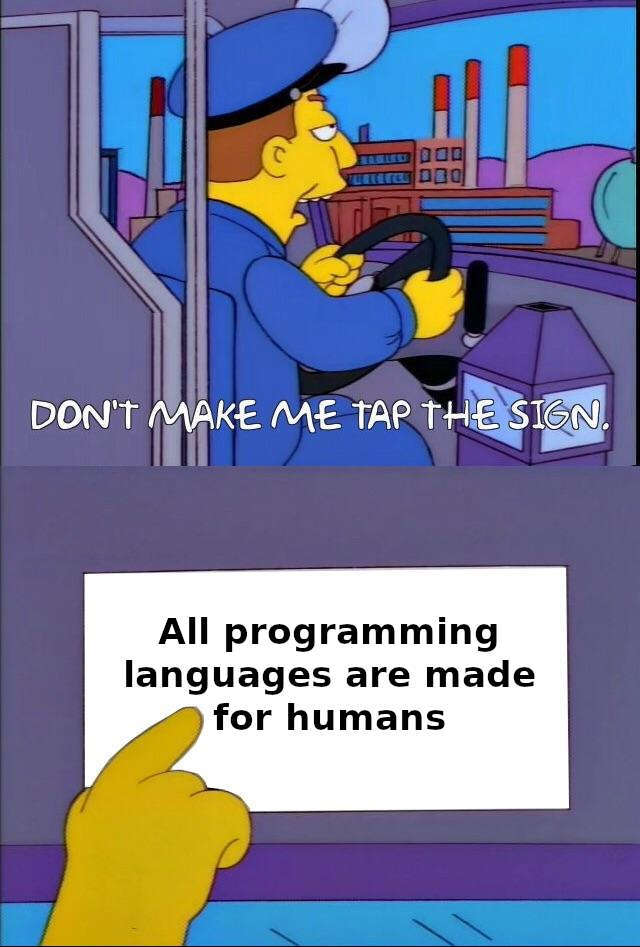this post was submitted on 07 Feb 2025
442 points (95.1% liked)
memes
11644 readers
2659 users here now
Community rules
1. Be civil
No trolling, bigotry or other insulting / annoying behaviour
2. No politics
This is non-politics community. For political memes please go to [email protected]
3. No recent reposts
Check for reposts when posting a meme, you can only repost after 1 month
4. No bots
No bots without the express approval of the mods or the admins
5. No Spam/Ads
No advertisements or spam. This is an instance rule and the only way to live.
A collection of some classic Lemmy memes for your enjoyment
Sister communities
- [email protected] : Star Trek memes, chat and shitposts
- [email protected] : Lemmy Shitposts, anything and everything goes.
- [email protected] : Linux themed memes
- [email protected] : for those who love comic stories.
founded 2 years ago
MODERATORS
you are viewing a single comment's thread
view the rest of the comments
view the rest of the comments

For me, I think it's that most common-language things that I happen to look at are 500-line+ with non-obvious short names (initialisms? might be an issue with low-level). Some of it might be down to optimization or language features/requirements, or not using libraries. Though I also don't hate whitespace so it may just be my brain.
The other side of the coin is that interpreted languages (being more readable) are slower(+single-threaded) and have other limitations/issues. I have some hope that Python's update with JIT and no-GIL may change that, but integrating it into other tools is still an issue so I haven't looked into it.
The one language that has clicked for me is Nim-lang (compiles-to-C, interop). I haven't done enough real projects, but I like the syntactic sugar and UFCS. Not sure if that's the best way to say it, but it's like the options that exist can be used to make code more concise. Something that seems small like how you can write conditions or loops can make a big difference.